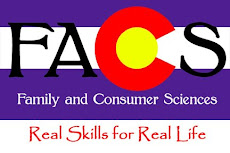Park Ridge, IL, January 11, 2011—Nutrition educators and other family and consumer sciences teachers throughout the U.S. interested in sharing, using or helping to develop effective nutrition teaching tools for students in grades 1 thru 12 are invited to go online to join a free knowledge-sharing program called “ENC-Teacher Exchange,” introduced this month by Egg Nutrition Center (ENC), science division of The American Egg Board headquartered in Park Ridge, Illinois.
As the ENC-Teacher Exchange program grows from infancy through fruition in 2012, it will feature specific types of nutrition education programs that, in the opinion of nutrition educators, resonate with their students. Teachers who join ENC-Teacher Exchange will be encouraged to share their best nutrition tools, which ENC will package with downloadable assets and make available for free at www.encteacher.org. As ENC-Teacher Exchange gains momentum, a half dozen “3-teacher creative teams” will be culled from the membership in 2012 to develop new nutrition tools, or to refresh existing ones, that will be augmented by university-based nutrition researchers provided by ENC.
Charter members of the ENC-Teacher Exchange program are expected to come from the American Association of Family & Consumer Sciences (www.aafcs.org), the widely recognized Washington D.C. Metro-based national non-profit representing family and consumer sciences professionals. AAFCS brings together FCS teachers, university educators, business and government professionals and others to achieve their mission of improving the quality of life for individuals, families and communities. AAFCS endorses the concept of ENC-Teacher Exchange, and has agreed to work with Egg Nutrition Center to help gain acceptance among FCS teachers.
ENC Executive Director Mitchell Kanter, PhD, conceived the ENC-Teacher Exchange primarily to create two-way dialog with teachers in response to America’s obesity epidemic, which he describes as “the number one nutrition-related issue of our time.” While “obesity” will be the primary theme of the program in 2012, ENC-Teacher Exchange may be expanded in 2013.
ENC’s egg-related research in universities over the years (www.eggnutritioncenter.org), which includes studies illustrating that nutrient-dense eggs have only 70 calories and fit well into healthy lifestyles, led Dr. Kanter to conclude that ENC, working more closely with teachers, could provide viable education solutions. ENC decided a nutrition-education web site populated by nutrition tools developed “by teachers for teachers” could better advance nutrition education and serve as an ally in the fight against obesity.
Family and consumer sciences teachers and other nutrition educators are encouraged to join the ENC-Teacher Exchange—online application takes only a few minutes—at www.ENCteacher.org. Members will be encouraged to participate in online forums to submit their ideas—which ENC will monitor—that will also serve to help ENC identify willing participants for “3-teacher creative teams” to develop new types of nutrition tools.



